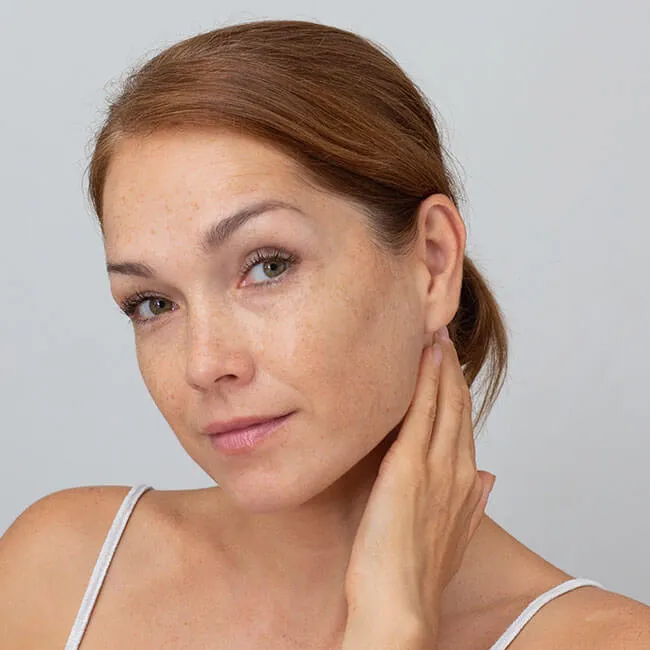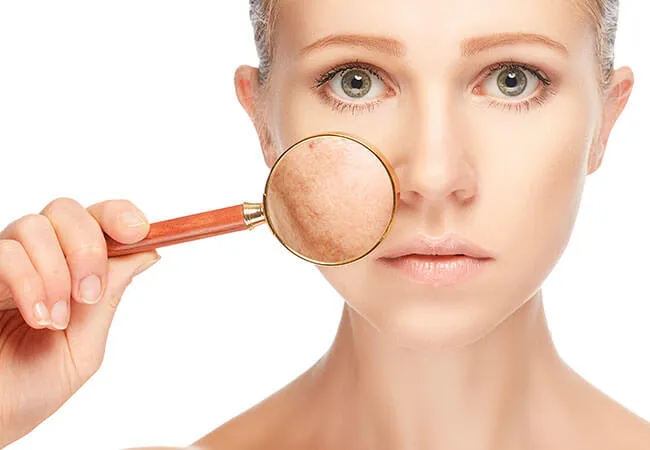


Discover the essence of radiant skin at Remagin in Windermere, Orlando. We specialize in advanced Skin Pigmentation Treatment and address melanin complexities for a harmonious complexion. Trust our experienced team in Windermere, Orlando, and nearby areas for proven results and holistic skincare, unlocking confidence in your transformative journey to radiant, even-toned skin.

There are two main types of skin pigmentation:
Skin pigmentation disorders encompass a range of conditions that affect skin coloration. These disorders result from imbalances in melanin production, leading to variations in skin tone. Understanding these conditions is crucial for effective diagnosis and targeted treatment.
Understanding the specific condition is critical to effectively treating skin pigmentation. Consult a dermatologist for an accurate diagnosis and treatment options.

Several factors can influence skin pigmentation. These causes contribute to the intricate palette of human complexion, leading to diverse pigmentation patterns. Understanding the main contributors to skin pigmentation irregularities is essential for effective management and tailored treatments. Some of them include:
Understanding these factors is crucial for effective pigmentation management. Seeking professional guidance is advisable for accurate diagnosis and personalized treatment plans.
Treatment options for skin pigmentation disorders vary depending on the specific condition and the nature of pigmentation irregularities. Here are some common treatment approaches:
Effective treatment for pigmentation disorders requires a personalized approach and consulting with a dermatologist. Lifestyle modifications such as a healthy skincare routine and avoiding excessive sun exposure are also crucial.

Immediately after the laser treatment, you can anticipate mild redness. It's common for pigmentation spots, such as freckles, to darken temporarily. This is a normal reaction, and the pigmented areas will naturally shed from the skin's surface within seven to 14 days, depending on your skin's cell turnover rate.
Within the first hour post-treatment, the pigmentation may continue to darken, and mild redness may persist. However, you can apply mineral makeup to the treated area after 24 hours to conceal redness.
Redness should diminish significantly the following day, though some may still be present. The treated pigmentation areas may appear darker at this stage.
Experience leading-edge Skin Pigmentation Treatment with Remagin. Our advanced formulations, backed by scientific research, target pigmentation issues for proven results. Our skincare professionals craft personalized plans for comprehensive solutions, ensuring maximum efficacy with minimal discomfort. Remagin seamlessly integrates into your routine, emphasizing holistic skincare—promoting renewal, hydration, and sun protection. With a proven track record and expert guidance, confidently choose Remagin for a transformative experience. Trust us as your premier choice for the best skin pigmentation treatment, where science meets beauty for radiant skin.
Certainly! Vitamin C inhibits melanin production, promotes even skin tone, and provides antioxidant protection, effectively addressing hyperpigmentation in skincare.
Vitamins B12, D, iron, and copper deficiency can lead to skin pigmentation issues, emphasizing the importance of a nutrient-rich diet for healthy skin.
While stress doesn't directly cause pigmentation, it can worsen skin conditions, leading to post-inflammatory hyperpigmentation. Managing stress is crucial for overall skin health.
The initial stage involves subtle changes in skin color, such as faint spots or uneven tone. Early detection and intervention are essential for effective skincare.
Melasma presents as symmetrical, brownish facial patches tied to hormonal changes or sun exposure. General pigmentation is broader; consult a dermatologist for accurate diagnosis and treatment.